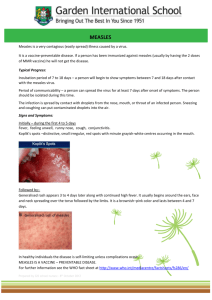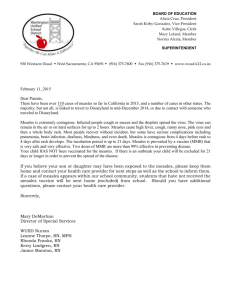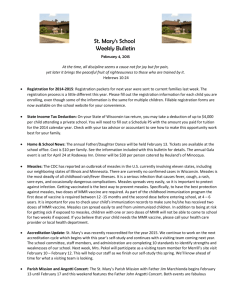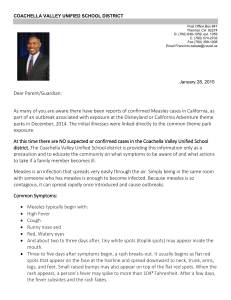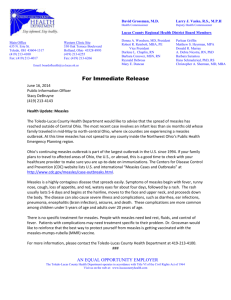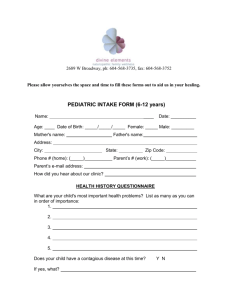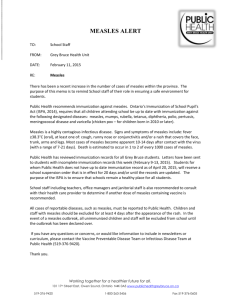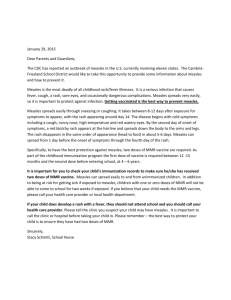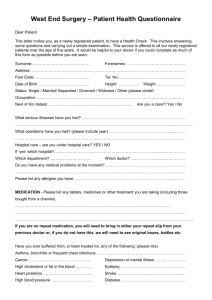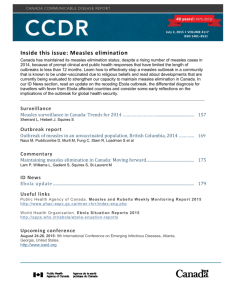Football fever is already a significant side effect of that much
advertisement
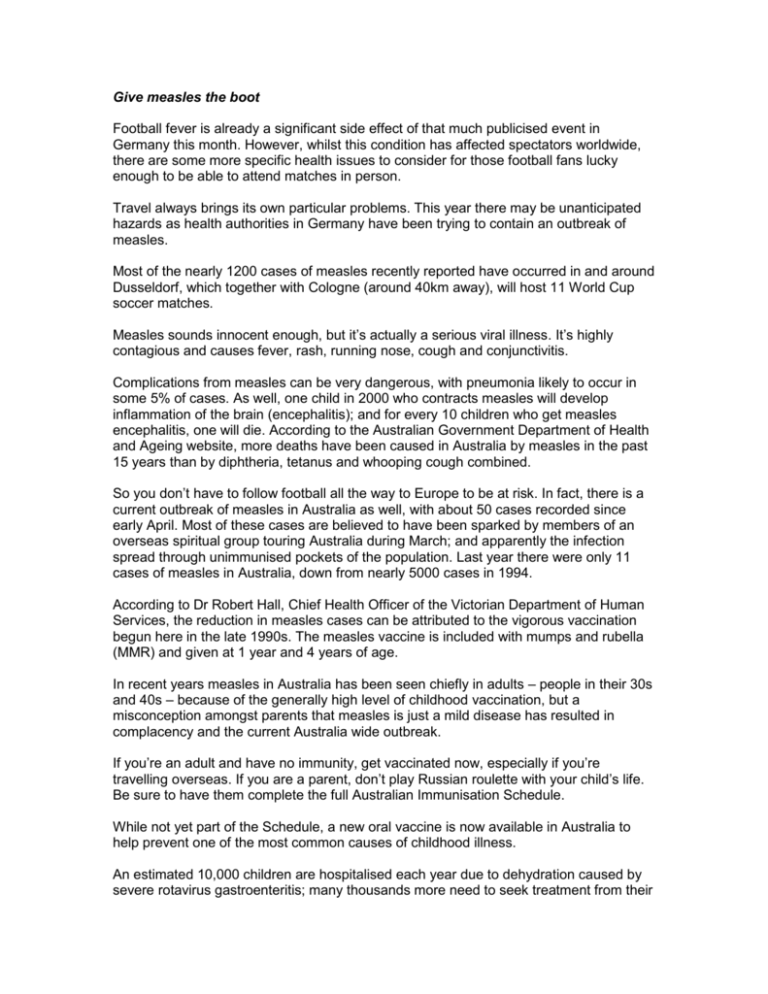
Give measles the boot Football fever is already a significant side effect of that much publicised event in Germany this month. However, whilst this condition has affected spectators worldwide, there are some more specific health issues to consider for those football fans lucky enough to be able to attend matches in person. Travel always brings its own particular problems. This year there may be unanticipated hazards as health authorities in Germany have been trying to contain an outbreak of measles. Most of the nearly 1200 cases of measles recently reported have occurred in and around Dusseldorf, which together with Cologne (around 40km away), will host 11 World Cup soccer matches. Measles sounds innocent enough, but it’s actually a serious viral illness. It’s highly contagious and causes fever, rash, running nose, cough and conjunctivitis. Complications from measles can be very dangerous, with pneumonia likely to occur in some 5% of cases. As well, one child in 2000 who contracts measles will develop inflammation of the brain (encephalitis); and for every 10 children who get measles encephalitis, one will die. According to the Australian Government Department of Health and Ageing website, more deaths have been caused in Australia by measles in the past 15 years than by diphtheria, tetanus and whooping cough combined. So you don’t have to follow football all the way to Europe to be at risk. In fact, there is a current outbreak of measles in Australia as well, with about 50 cases recorded since early April. Most of these cases are believed to have been sparked by members of an overseas spiritual group touring Australia during March; and apparently the infection spread through unimmunised pockets of the population. Last year there were only 11 cases of measles in Australia, down from nearly 5000 cases in 1994. According to Dr Robert Hall, Chief Health Officer of the Victorian Department of Human Services, the reduction in measles cases can be attributed to the vigorous vaccination begun here in the late 1990s. The measles vaccine is included with mumps and rubella (MMR) and given at 1 year and 4 years of age. In recent years measles in Australia has been seen chiefly in adults – people in their 30s and 40s – because of the generally high level of childhood vaccination, but a misconception amongst parents that measles is just a mild disease has resulted in complacency and the current Australia wide outbreak. If you’re an adult and have no immunity, get vaccinated now, especially if you’re travelling overseas. If you are a parent, don’t play Russian roulette with your child’s life. Be sure to have them complete the full Australian Immunisation Schedule. While not yet part of the Schedule, a new oral vaccine is now available in Australia to help prevent one of the most common causes of childhood illness. An estimated 10,000 children are hospitalised each year due to dehydration caused by severe rotavirus gastroenteritis; many thousands more need to seek treatment from their local doctor with symptoms such as diarrhoea, fever and vomiting lasting several days or longer. Rotavirus outbreaks not only fill hospital beds and cause untold anxiety amongst families, but at certain times each year these outbreaks cause significant disruption in childcare centres. Even with high standards of sanitation and hygiene, rotavirus is highly contagious and can’t easily be avoided. The new vaccine Rotarix is given in two doses and should provide protection for young babies before the peak incidence of this form of gastroenteritis occurs between the age of six months and two years. For more advice on immunisation, ask at your local Self Care Pharmacy. Phone the Pharmaceutical Society on 1300 369 772 for the nearest location.
